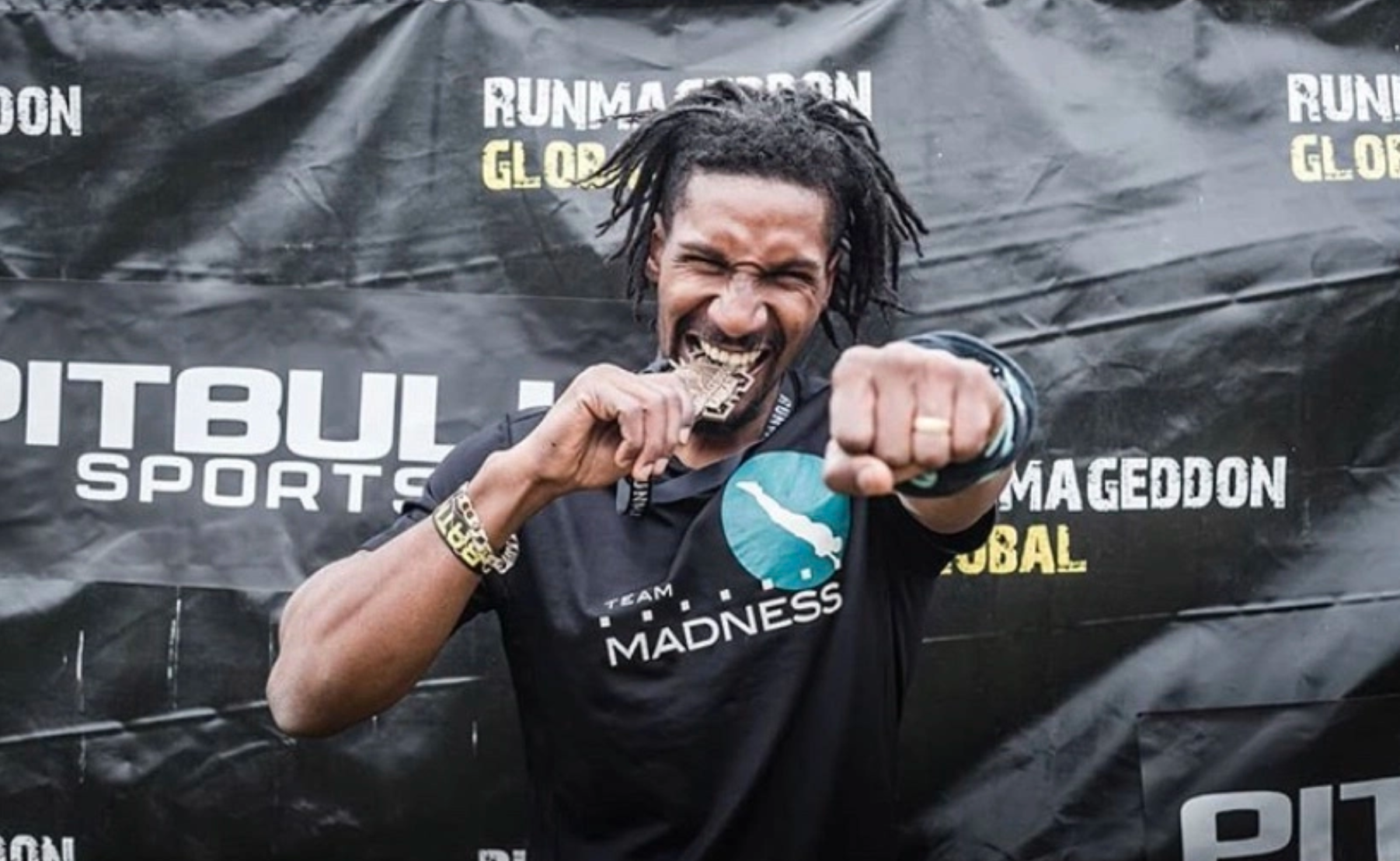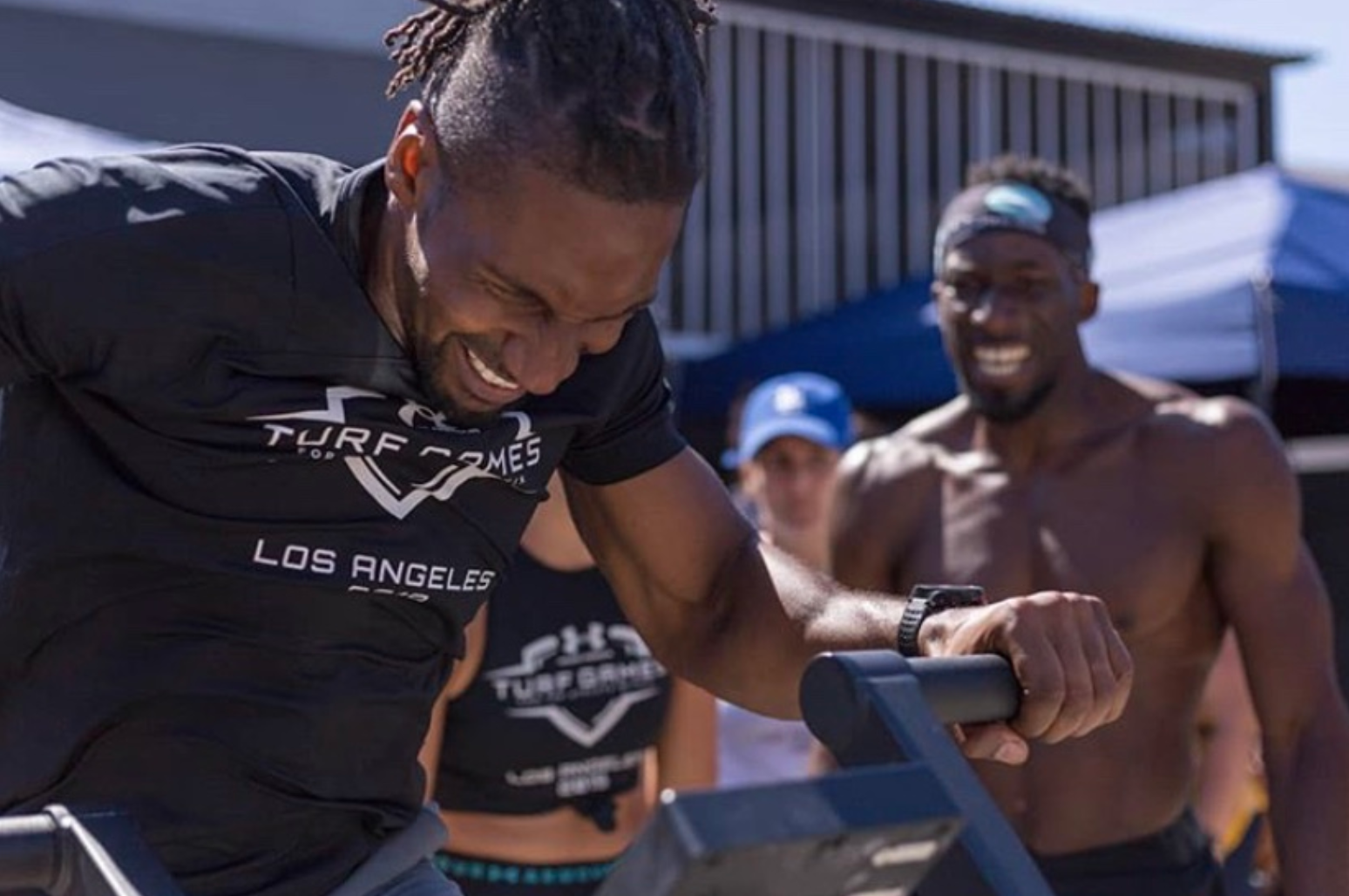Obstacle Course Racing, Opportunity and Diversity
The F Word with AJ Madness
The F Word’s Black History Month series kicks off with London based Obstacle Course Racing World Championship Athlete, Personal Trainer and Fitness Instructor, AJ Madness. In our interview, AJ discusses the importance of capitalising on opportunities in the fitness industry, as well as creating a diverse OCR culture.
Like many, AJ’s relationship with sport began in school. After a successful Junior Basketball career, he made the seemingly natural transition from ‘Athlete’ to ‘Coach’. His dedication to his local team afforded him an U17 England Basketball coaching opportunity in Birmingham. AJ explains that when entering the coaching industry, he hadn’t considered the possibility of becoming an England coach. But it was through fostering meaningful connections with influential figures in the industry, along with good quality coaching, that he was granted the opportunity.
‘They saw my work ethic, but also that my athletes were improving. I was willing to work hard because I knew someone would notice my commitment’.
Following his sports coaching career, AJ moved into Personal Training. New Personal Trainers face significant barriers when breaking into the industry, such as extortionate rent rates and client retention. AJ was no stranger to this struggle, and found himself vulnerable and without a consistent client two months into his new role. At this crucial stage, he changed his strategy and decided to train friends for free in the gym in order to showcase his talent to potential clients. This move is what ultimately catapulted his career.
‘From there, it was a domino effect. Initially, no one was willing to give me a chance, but I kept going. And then I became one of the busiest PT’s in the gym’.
Although a lot of his time is dedicated to training clients in the group fitness and personal training capacity, AJ still finds time to focus on his own training. AJ initiated a competitive career in Obstacle Course Racing (OCR) following a group social event at a Zombie Evacuation OCR. It was during this seemingly recreational activity that AJ discovered his talent for OCR. By gathering a few friends and submitting to OCR’s, he soon developed what is now known as Team Madness; an OCR squad composed primarily of Black Minority Ethnic individuals (BME). Following smart investments in branding and focused training, the team grew from strength to strength. They were soon entered into the World Championships, which AJ described as a great feeling. When he approached the start-line of the Zombie Evacuation race, he was unaware of the competitive, well-established and fulfilling community that he was entering.
‘It was the biggest adrenaline rush I have ever had’.
Many competitions later, AJ was flown to Canada for another World Championships. AJ explained that OCR has provided him the opportunity to travel the world, having competed in and explored: Canada, Barcelona, Denmark, Poland, Netherlands and Georgia, harbouring some of the most memorable experiences of his life.
The geographically diverse nature of OCR led me to question AJ on its ethnic diversity. AJ explains that during the World Championships, he was one of the only Black athletes competing. Being amongst the ‘first Black person’ in any area of life can be daunting, inducing an emotional mix of exclusion and excitement. This was the case for AJ, who explained that throughout life he has grown accustomed to being the minority. Lack of diversity in sport can discourage participation by creating feelings of ‘otherness’, but equally can be an opportunity to promote change and diversify current practice. AJ opted for the latter. I asked him whether OCR’s lack of diversity acted as a barrier for his participation, for which he responded:
‘No, not at all, the OCR world is the most rewarding world I’ve ever been a part of’.
Overcoming feelings of racial exclusion in sports requires strength, and it’s this strength that is integral to the development of inclusive, accessible and valuable sport, globally. AJ explains:
‘I’ve always felt it was my position to show my worth. I’m thankful that I’m born in an era where I am able to do that. Historically, there was a time where I would have been told I can’t compete. People often say: “you’re the only black guy”, but if I don’t do it, who else will?’.
It’s people like AJ who are driving change in sports, by bravely becoming one of ‘the First' black people, taking all that comes with that responsibility, and paving the way for future OCR Black athletes. By being present on that start line, AJ overcame physical and metaphorical obstacles; running the ‘First’ race so that other black individuals do not have to. AJ faces hegemony in sport with the same bravery that he faces the 'Dragon's Back' obstacle, with a deep breath, gritted teeth, and unwavered determination. For AJ, OCR is more than course records, medals and titles. It’s an opportunity to do more. Through Team Madness, AJ has proactively addressed OCR diversity issues and brought more Black individuals into competitive obstacle course racing than ever before.
AJ’s positive outlook on sports and racial diversity encouraged me to reconcile my own insecurities as a Black athlete in a significantly white-dominated sport. Rather than viewing racial imbalance in sport as a barrier to participation, AJ encouraged me to see white-dominated activities as opportunities to create space for other BME people. The mere presence of Black faces within sporting activities encourages participation, especially from young people who often look for role-models in sport.
Whilst competing in OCR, AJ has achieved what many coaches aspire to by developing his own class concept: Caveman. The concept, which AJ teaches weekly, makes callisthenics accessible to all. AJ’s progression from Sports Coach to Personal Trainer, to Athlete and Concept Creator highlights the abundance of opportunity within the fitness industry. His OCR story is one of courage, and his fearless attitude towards diversity issues in sport is what will drive change.
You can follow AJ at @ajsmadness, @teammadness and www.ajmmfitness.wordpress.com



